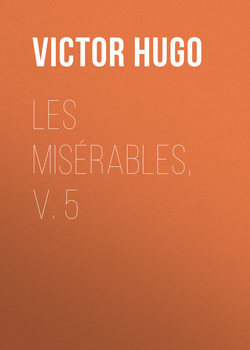Читать книгу Les Misérables, v. 5 - Victor Hugo, Clara Inés Bravo Villarreal - Страница 13
BOOK I
THE WAR WITHIN FOUR WALLS
CHAPTER XIII
GLEAMS WHICH FADE
ОглавлениеIn the chaos of feelings and passions which defend a barricade there is everything, – bravery, youth, the point of honor, enthusiasm, the ideal, conviction, the obstinacy of the gambler, and above all intermitting gleams of hope. One of these intermittences, one of these vague quiverings of hope, suddenly ran along the Chanvrerie barricade at the most unexpected moment.
"Listen," Enjolras, who was ever on the watch, exclaimed. "I fancy that Paris is waking up."
It is certain that on the morning of June 6 the insurrection had for an hour or two a certain reanimation. The obstinacy of the tocsin of St. Merry aroused a few slight desires, and barricades were begun in the Rue du Poirier and in the Rue des Gravilliers. In front of the Porte St. Martin, a young man armed with a gun attacked a squadron of cavalry alone, unprotected, and on the open boulevard he knelt down, raised his gun, fired and killed the Major, and then turned away, saying, "There's another who will do us no more mischief." He was cut down. In the Rue St. Denis a woman fired at the National Guard from behind a Venetian shutter, and the wooden laths could be seen to tremble every moment. A boy of fourteen was arrested in the Rue de la Cossonnerie with his pockets full of cartridges, and several guard-houses were attacked. At the entrance of the Rue Bertin Poirée a very sharp and quite unexpected fusillade greeted a regiment of cuirassiers, at the head of which rode General Cavaignac de Barague. In the Rue Planche Mibray old crockery and household utensils were thrown from the roofs down on the troops; this was a bad sign, and when Marshal Soult was informed of the fact, Napoleon's old lieutenant became pensive, for he remembered Suchet's remark at Saragossa: "We are lost when old women empty their pots de chambre on our heads." These general symptoms manifested at a moment when the riots were supposed to be localized, this fever of anger which regained the upper hand, these will-o'-the-wisps flying here and there over the profound masses of combustible matter which are called the faubourgs of Paris, and all the accompanying facts, rendered the chiefs anxious, and they hastened to extinguish the beginnings of the conflagration. Until these sparks were quenched, the attacks on the barricades Maubuée, de la Chanvrerie, and St. Merry were deferred, so that all might be finished at one blow. Columns of troops were sent through the streets in a state of fermentation, clearing the large streets and searching the smaller ones, on the right and on the left, at one moment slowly and cautiously, at another at quick march. The troops broke open the doors of the houses whence firing was heard, and at the same time cavalry manœuvres dispersed the groups on the boulevards. This repression was not effected without turmoil, and that tumultuous noise peculiar to collisions between the army and the people, and it was this that had attracted Enjolras's attention in the intervals between the cannonading and the platoon fire. Moreover, he had seen wounded men carried along the end of the street on litters, and said to Courfeyrac, "Those wounded are not our handiwork."
The hope lasted but a short time, and the gleam was quickly eclipsed. In less than half an hour what there was in the air vanished; it was like a flash of lightning without thunder, and the insurgents felt that leaden pall, which the indifference of the people casts upon abandoned obstinate men, fall upon them again. The general movement, which seemed to have been obscurely designed, failed, and the attention of the Minister of War and the strategy of the generals could now be concentrated on the three or four barricades that remained standing. The sun rose on the horizon, and an insurgent addressed Enjolras, —
"We are hungry here. Are we really going to die like this, without eating?"
Enjolras, still leaning at his parapet, made a nod of affirmation, without taking his eyes off the end of the street.
